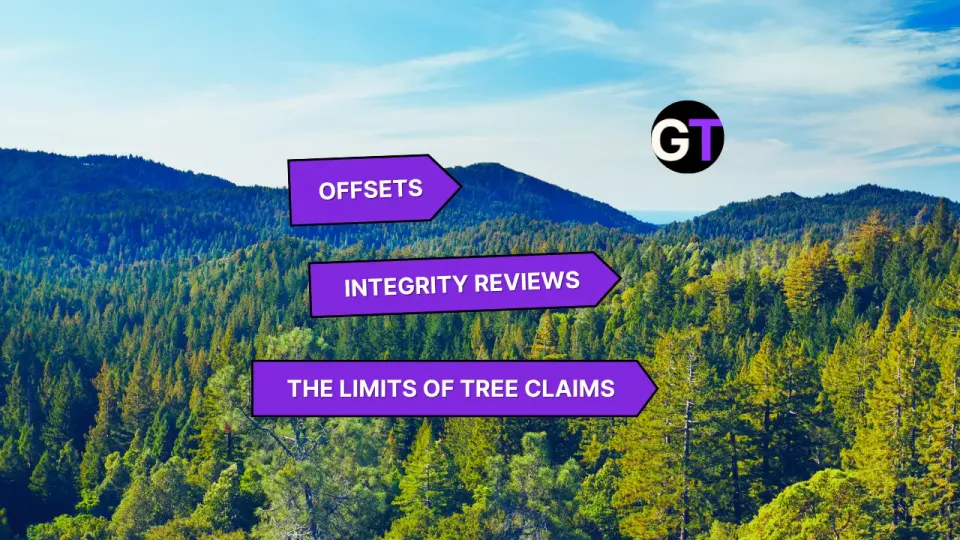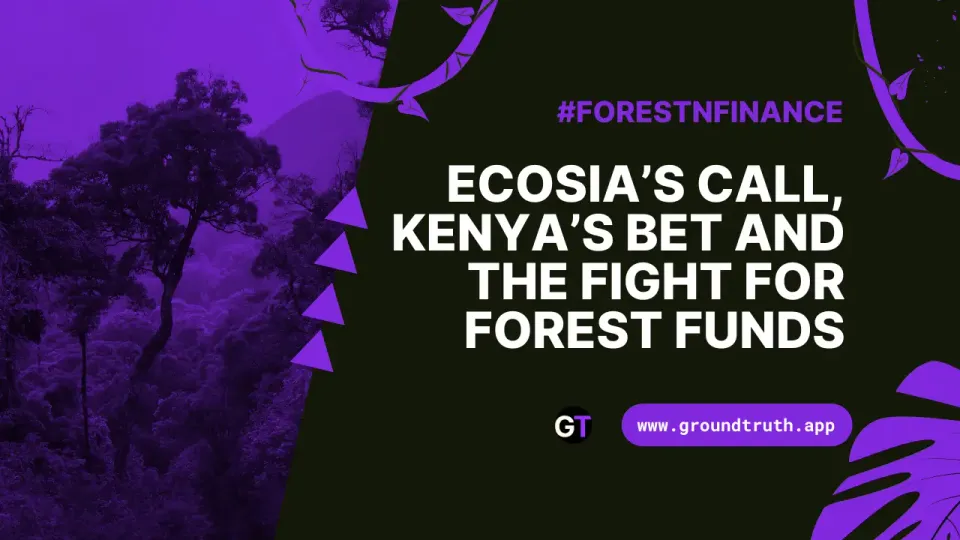Weekly News Roundup October 10
New apps, new investments in nature, new studies on wildfire mitigation and more🌳💡

Brazil’s Bold Idea: Pay Billions to Protect Forests 💡💰
Brazil 🇧🇷 is pitching a groundbreaking fund, the Tropical Forests Forever Facility (TFFF), which would pay countries to preserve their tropical forests while offering returns to investors. The proposed $125 billion fund aims to flip the economics of deforestation by rewarding countries $4 per hectare of standing forest. This initiative could help curb massive deforestation while also generating sustainable income for developing nations.
Could this be the game-changer we need to save our forests?
👉👉Read more in the New York Times
The State of Our Forests: 2024 Forest Declaration Assessment 🌳🌍
As the world grapples with climate, biodiversity, and nature crises, tracking our progress on forest protection and restoration is more important than ever. The 2024 Forest Declaration Assessment, launched on October 8, offers insights into deforestation, forest degradation, fires, and restoration efforts. It analyzes global and regional trends to spotlight where we're making strides – and where urgent action is still needed.
Ready to dive into the latest on forest protection? 🌲
👉👉Read the full report on forestdeclaration.org
Investing in Nature: Innovations Driving Financial Support for Natural Capital🌱
With over half of global GDP depending on nature and biodiversity, investing in natural capital – resources like forests, water, and soil – is crucial for sustainable development. However, these vital ecosystems are in decline. This report highlights how innovative financial tools and technologies are beginning to mobilize private investment to restore and maintain natural capital, helping to bridge the gap that traditional economic models have overlooked.
Can innovation help save the planet? 🌍
👉👉Read the full report from the World Economic Forum.
How Climate Change is Reshaping the Workforce 🌍💼
Climate change is reshaping the workforce in developing countries, with impacts on productivity, job availability, and overall economic growth. Extreme weather events, like 🌪️ heatwaves and 🌊 flooding, hit the most vulnerable sectors, like agriculture 🌾 and manufacturing 🏭, the hardest. To adapt, workers and businesses may need to rethink strategies and adopt cooling technologies or flexible work arrangements to counteract climate stress.
What steps do you think governments should take to protect workers from climate risks?
👉👉Read more on the World Bank blog
Support for Forest Recovery After Natural Disasters 🌲💨
In the wake of natural disasters like hurricanes, tornadoes 🌪️, and wildfires, landowners across the U.S. are scrambling to find resources to help restore their forests. Public programs like the Emergency Forest Restoration Program (EFRP) offer federal support for private landowners, while private funding options focus on carbon sequestration projects 🌍. Each option has specific eligibility criteria, so getting your application in early is key.
What resources do you think would help landowners prepare for future natural disasters?
👉👉Read more from NCX.
Innovative Climate Finance Solutions 🌱💰
The Global Innovation Lab for Climate Finance recently announced its 2024 cohort, featuring 10 innovative climate finance solutions with a combined investment opportunity of USD 490.5 million 💸. These initiatives, spanning multiple regions, address challenges like renewable energy access ⚡, sustainable agriculture 🌾, and urban infrastructure resilience 🏙️. Projects will launch in countries such as Brazil 🇧🇷, India 🇮🇳, and South Africa 🇿🇦, driving private and public investments into climate action.
👉👉Read more here.
Announcing the Global Forest Carbon Watch App! 🌳🌍
Just in time for NYC Climate Week, Mateus Mendes has launched an exciting personal project: the Global Forest Carbon Watch app. This free tool provides users with access to data on over 500 Nature-Based Solutions (NbS) projects, offering a real-time look at geospatial and carbon credit data 🚀. Built using Google Earth Engine and Streamlit, the app is an open-data powerhouse, showcasing satellite imagery, deforestation, and above-ground biomass data.
💡 This app is a continuous work-in-progress, so stay tuned for more updates and improvements!
👉👉Read more on Linkedin.
Expert Review of Nature-Based Climate Solutions (NbCS)🌍 🌳
A 2024 article in Nature Climate Change by Buma and colleagues critically examines the scientific foundations of various Nature-Based Climate Solutions (NbCS). While some approaches, like tropical forest conservation 🌲, have strong backing for carbon mitigation 🌍, others, especially in carbon credit markets 💸, face uncertainties in measuring greenhouse gas (GHG) reductions.
💡 How can we prioritize pathways with high potential and scientific backing while still exploring innovative solutions?
👉👉Read more in Nature.
Rethinking Wildfire Management: BC’s Urgent Call for Change 💡🚨
British Columbia (BC) faced an unprecedented wildfire season in 2023 🔥, with more than 2,245 fires burning across 2.8 million hectares. These extreme events are fueled by climate change 🌡️ and land management issues. BC is calling for transformative strategies such as restoring cultural fire practices 🔥🌀 and improving community resilience 🏡.
How can we better prepare communities to live with the increasing threat of wildfires?
👉👉Read more in the Canadian Journal of Forest Research.
Big Players Falling Short: 40% of Regions and Companies Lack Climate Targets 📉🌍
Despite rising awareness 🌎 of the climate crisis, more than 40% of major companies and regions still haven't set any goals to reduce emissions 🏭. Experts warn that without concrete action plans 📋 and accountability, the commitment gap will keep growing, putting net-zero ambitions at risk.
Do you think businesses are doing enough to fight climate change?
👉👉Read more in Reuters.




